BY LETTER
Stars near Sol - Exploration and Colonisation
Galactography
Galactography > Regions of Space > Inner Sphere
Galactography > Maps of the Terragen Sphere
Galactography > Other Major Polities, Empires, and Meta-Empires > Solar Organisation
Galactography > Regions of Space > Inner Sphere
Galactography > Maps of the Terragen Sphere
Galactography > Other Major Polities, Empires, and Meta-Empires > Solar Organisation
The Local Neighborhood | |
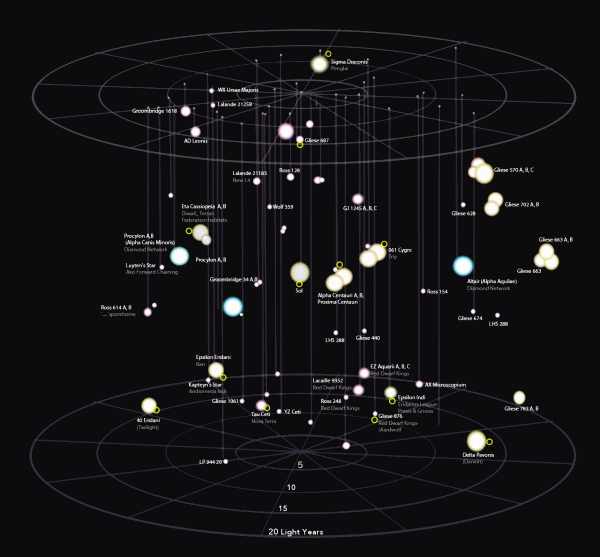 Image from Arik | |
| Animation of the major early exploration efforts in the Solar Neighborhood (click to activate) | |
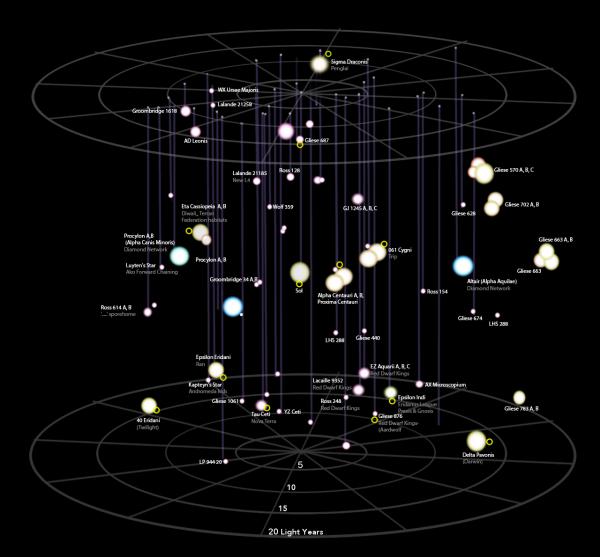 Image from Arik | |
| Stars within 30 ly of Sol | |
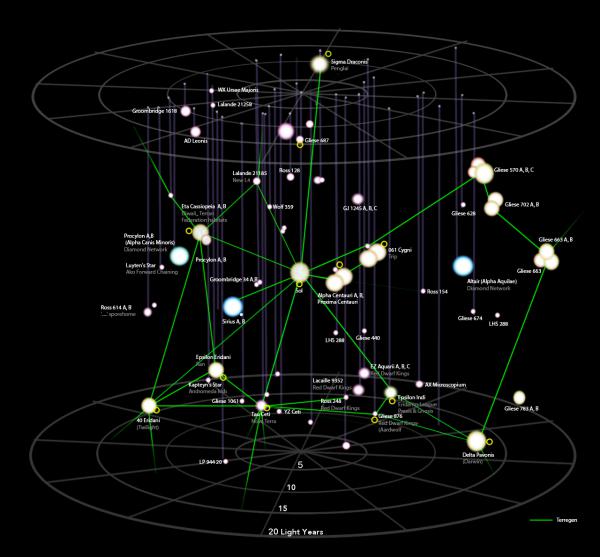 Image from Arik | |
| Early manned colony missions | |
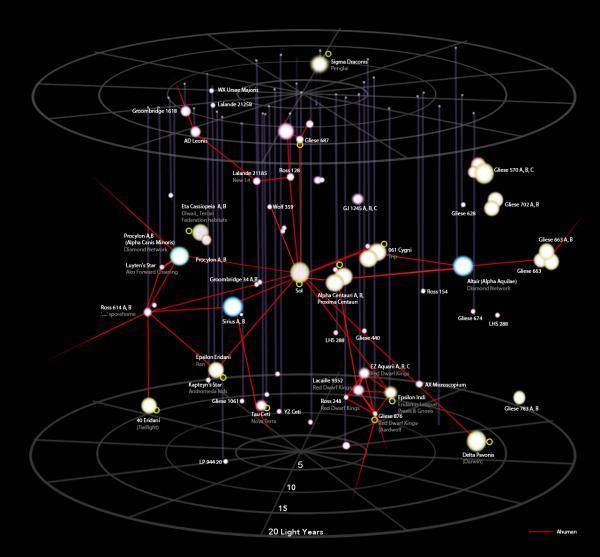 Image from Arik | |
| Early interstellar missions by (mostly independent) AI craft | |
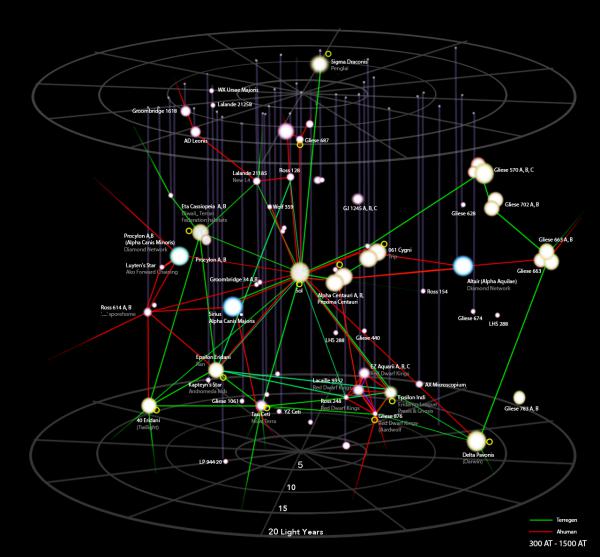 Image from Arik | |
| Early interstellar exploration, including manned missions and AI-only missions | |
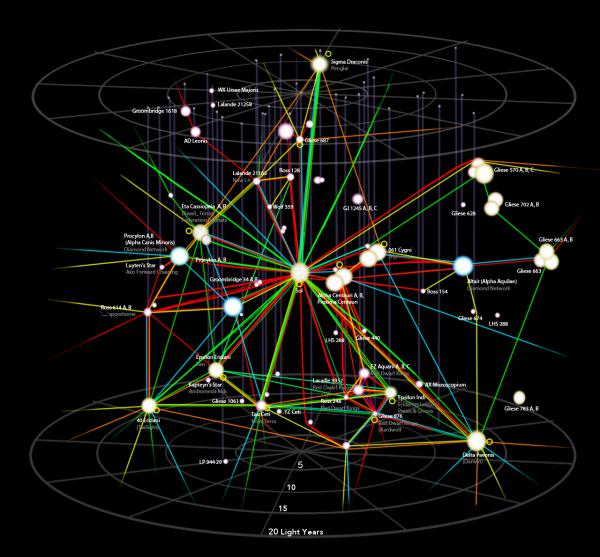 Image from Arik |
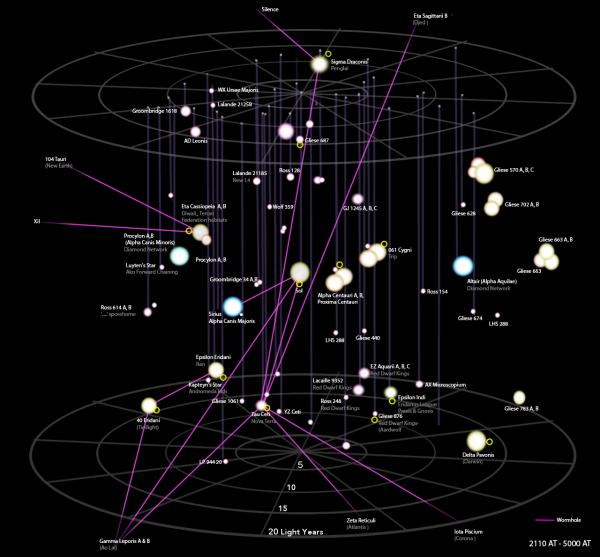 Image from Arik | |
| Wormhole Routes in the Solar Neighborhood established after 2200 AT | |
Related Articles
- Ahuman (A-human) AIs, The
- Alpha Centauri A+B
- Altair
- Colonisation (400 - 1099 AT)
- Colony Ships
- Darwin (Life-bearing World)
- Diwali
- Epsilon Indi
- Luyten's Star
- Penglai
- Procyon (Alpha Canis Minoris)
- Ran (Epsilon Eridani)
- Red Dwarf Kings, The
- Sirius
- Sol - Text by M. Alan Kazlev
The sun of the Sol System, a G2 type yellow dwarf, it has the defining quality of being the home-star of terragenkind. Even today much galactic measurement is based on distances from Sol. - Solsys
- Tau Ceti
- Twilight
Appears in Topics
Development Notes
Text by Arik
Additional material by Steve Bowers
Initially published on 27 July 2016.
Additional material by Steve Bowers
Initially published on 27 July 2016.






